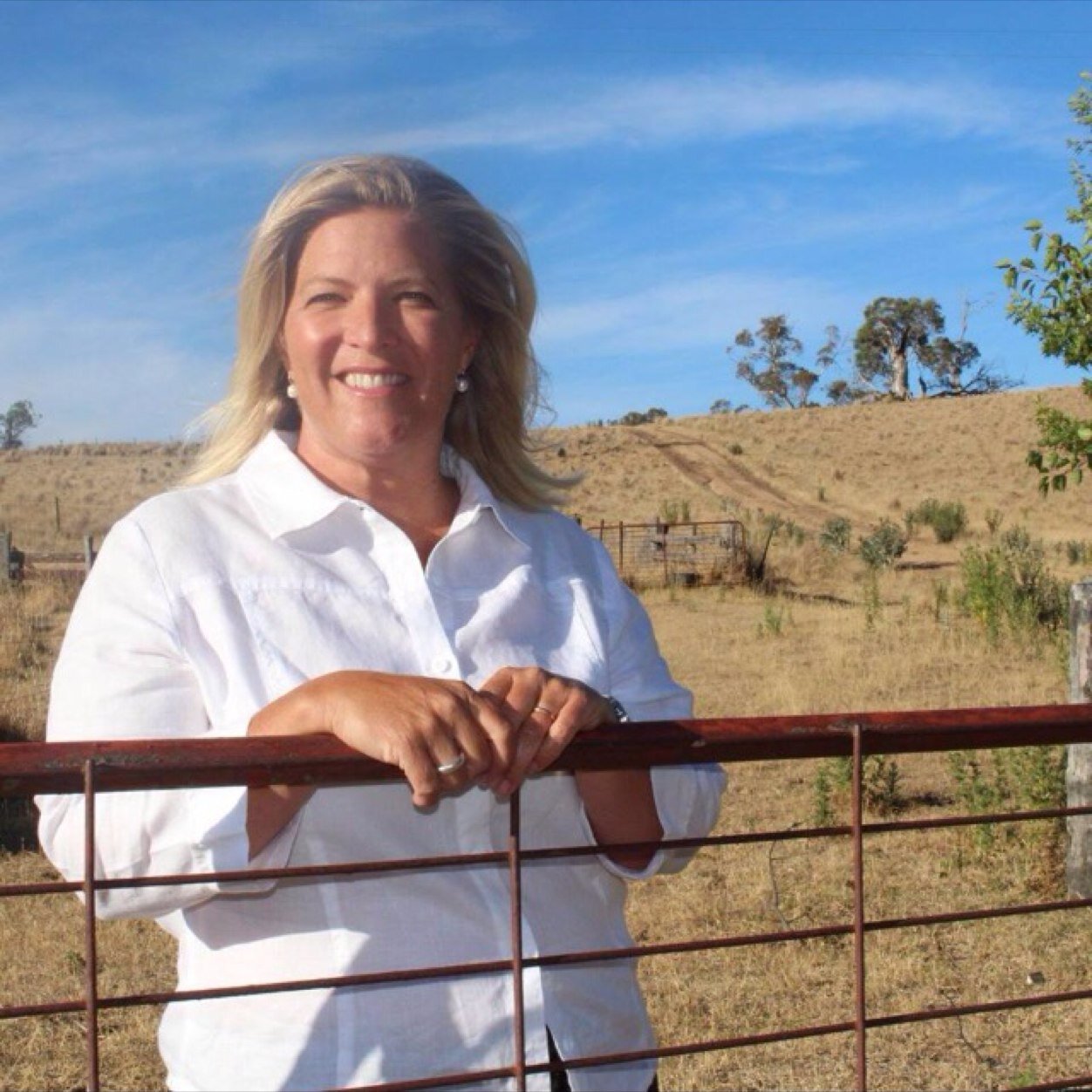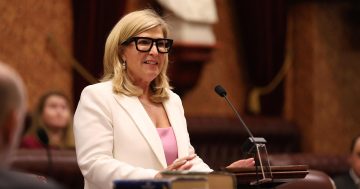
NSW Nationals MLC, Bronnie Taylor on the family farm near Nimmitabel. Photo credit: https://twitter.com/bronnietaylor
It’s been an emotional day in one half of the New South Wales Parliament, with Members of the Legislative Council, AKA the upper house, speaking to the “Voluntary Assisted Dying Bill 2017.”
Introduced by Nationals MP Trevor Khan, the legislation would allow terminally ill patients to take action that would cause their death with the assistance of doctors.
Following a similar Bill currently before the Victorian Parliament, under the proposed NSW law, only patients over the age of 25 and those expected to die within 12 months would be able to legally take their life.
The proposal is that patients must be assessed by a psychologist or psychiatrist and have their decision signed off on by two medical practitioners, including a specialist.
It’s action that can be challenged by close family of the patient in the Supreme Court.
Party leaders have given all MPs a conscience vote on the issue, but for it to progress to the lower house – the domain of local’s like Andrew Constance and John Barilaro, the Bill first needs to pass the upper house.
The Monaro’s Bronnie Taylor sits in the upper house and spoke to the Bill from her perspective as a nurse.
“The fact is that all the money in the world thrown at palliative care will not be able to help everyone and anyone who says otherwise is simply not speaking the truth,” Mrs Taylor told parliament.
Speaking to About Regaional later in the day, Mrs Taylor said, “I am very disappointed that this legislation was defeated by one vote tonight. I found it a difficult day.
“I respect everyone has their own opinions but I am absolutely convinced that this is a good Bill and should have passed.
“My heart goes out to all those that so desperately wanted to die with dignity which they so deserve,” Mrs Taylor said.
Read and watch Bronnie Taylor’s full speech to parliament below…
I understand that the Voluntary Assisted Dying Bill 2017 is an emotive issue for everyone so I take this opportunity to thank everyone in the Chamber for the respect shown during this process.
We all come from different places, we all have different beliefs but we are all here to do the best we can.
I genuinely believe we all try to do our best, albeit in very different ways. I have thought long and hard about what I wanted to say today.
I have consulted widely with many people. I have strong connections with people in the health industry in many different professions.
I am conscious that many members wish to speak today so I will attempt to keep my contribution brief and to the point.
I still think of myself—and I always will—as a nurse. I love and value the profession; it was so very good to me.
I speak as someone who has walked the walk and talked the talk. I spent more than 20 years as a nurse before I entered this place just over 2½ years ago, all of that time specialising in cancer care, oncology, with eight years as a clinical nurse specialist in palliative care.
We all have our own stories of death and dying.
On this day, World Pancreatic Cancer Day, I remember my dad, Ward Washington, who died from a horrible insidious disease.
Dad lived in Sydney next to one of the best hospitals in the world but it did not equate to him getting the best palliative care—something for which I can vouch.
My father was a devout Catholic and I do not think he would have chosen the option of this legislation if it were available to him.
But it leads me to a point that has been talked about in the media—that the answer to all of this must be better palliative care and that access to good palliative care depends on one’s postcode.
That simply and most definitely is not true.
My husband, Duncan—a man of much wisdom and common sense; a farmer, lawyer and economist—lost his mum to metastatic breast cancer when he was 20. I remember it well.
I was doing my first practical at the time, doing a community nursing placement. I knew then that I had found my passion.
Duncan’s family cared for his mum at home. They live half an hour out of Cooma, which is the main town, and have a long dirt driveway so one could say that they are isolated.
They felt so grateful to be able to have her at home to die. They had excellent palliative care in Nimmitabel, postcode 2631, population around 300.
Mrs Walters was their generalist community nurse; she still works at Cooma Community Health. This brilliant nurse, with a wealth of experience, worked closely with Duncan’s mum’s general practitioner [GP], Dr Vic Carroll.
Duncan’s mum died surrounded by her husband, Peter, who carefully and lovingly cared for her, her sons and her treasured friends.
That was great palliative care, delivered by a community nurse and a GP—no fancy hospice, no specialist—just a great team in a rural community.
Importantly, it was a community that cared for her and the family because that is what we do in the country; we care for each other in times of challenge and sadness.
When specialist doctors in the cities say that people in the country do not have access to good palliative care, they should come down south and have a look.
I know that is lacking in some centres but all of the specialists in the world will not solve that. What is needed is good basic nursing care, professionals who are willing and able to spend time with people and their families.
I have worked with people who are dying and their families for most of my professional life. I, too, have personal stories but I speak today from my professional experience.
I spoke earlier about being a clinical nurse specialist based in Cooma and I covered the entire Monaro area.
The fact is that all the money in the world thrown at palliative care will not be able to help everyone and anyone who says otherwise is simply not speaking the truth.
I know we need more resources and I will fight for that every day in this place while I am privileged to be a member. I can also relate many stories of the patients I have cared for but that is not my job today.
However, specialists who state in the media that anyone who wants to end their life at a time of their choosing after being diagnosed to be in the terminal phase of their illness is depressed and after receiving specialist palliative care will change their minds is a falsehood and something I find offensive.
The whole notion that excellent palliative care can cure everyone’s suffering is not true. Anyone who has worked with people who are dying knows emphatically that that is not true.
https://www.facebook.com/bronnietaylormlc/videos/1995558837386428/
Let us all be honest and truthful in this debate.
People’s opinions are their own and they should not be imposed on others as if they were fact when they are not.
It is an interesting fact that when people are diagnosed with a disease—and I use cancer as an example as I know a little about this—they are always given the option of treatment to prolong their life, treatment to make them live longer, regardless of whether that treatment has a less than 5 percent chance of working.
People are offered that option and it is their choice. We give people the right to choose if they want to extend their life so I ask: Why do we not give people the option to end their lives, at a time of their choosing, surrounded by the people they love and above all—the ultimate—with the dignity that they so deserve?
We have spoken a lot about vulnerability and I have seen it time and again. Vulnerability comes when we feel we are losing control. It is a horrible feeling.
I used to say to my patients when I sensed their vulnerability, “This cancer will not define you or control you. You need to define it.”
We worry that this will hurt our most vulnerable. I completely disagree; this legislation will empower them and give them control.
I would like to quote Dr Charlie Teo of whom I am very fond. Dr Teo said:
“I am proud of my reputation of never giving up on patients who still have the will to live despite what others believe to be an exercise in futility.
“I am equally as proud to support Dying with Dignity because the only situation that would be worse than not having control of your life is to not have control over your own death.”
They are powerful words from an outstanding individual who does so much for so many at the most vulnerable time of their lives.
I quote from my husband whom I have been quoting a lot, as I do about most things. He sent me this text the other day which states:
“There is happiness and peace in knowing you will retain control over your own destiny, even if in all likelihood you don’t use it.
“Knowing you will slowly lose control will surely increase suffering and misery. And giving your control over your destiny to the government … well that is very dissatisfying.”
The fundamental reason for my vote today is based on the ultimate principle that I do not believe that government and politicians should tell people how to run their lives.
My belief is that we need to get out of the way. Our responsibility is to provide a safe framework.
I quote from the excellent position paper of the New South Wales Nurses and Midwives Association, even though the association and I do not always see eye to eye. However, I commend the association for this document.
It states:
“Our members provide high quality palliative care that for the majority is able to alleviate physical pain and provide adequate comfort.
“Unfortunately, palliative care is not effective for all patients and some experience unbearable pain and suffering for prolonged periods of time.
“We believe that legislation reform in this area will actually provide protection to people who are vulnerable.”
The draft bill, which is rigorous in its requirements, requires that a person who wishes to seek assistance should express such a wish to three separate health practitioners over a minimum period of nine days before assistance can be provided.
It also requires that a person be deemed of sound mind before assistance can be provided.
I believe the legislation is rigorous and commend the working party for its bravery and courage. It has done a good job.
Under this bill, people will need approval from three doctors. I trust doctors; I trust that they will make the right decision and not allow people to access the provisions in this legislation if they do not qualify.
Clause 29 of the bill specifically states that this is not about letting people commit suicide.
It is not about telling people with mental health issues that they are unworthy. This legislation would not give them access so it is wrong to draw that conclusion.
People in this Chamber might not wish to use this legislation which is fine; it is their choice. But they should not impose their views on others.
It is their right to choose, which is the way it should always be in a free and democratic country such as Australia.
I support this bill.
Bronnie Taylor is the Parliamentary Secretary to the Deputy Premier and Southern NSW and is a Nationals MLC.
*Text taken from NSW Parliament Hansard.











